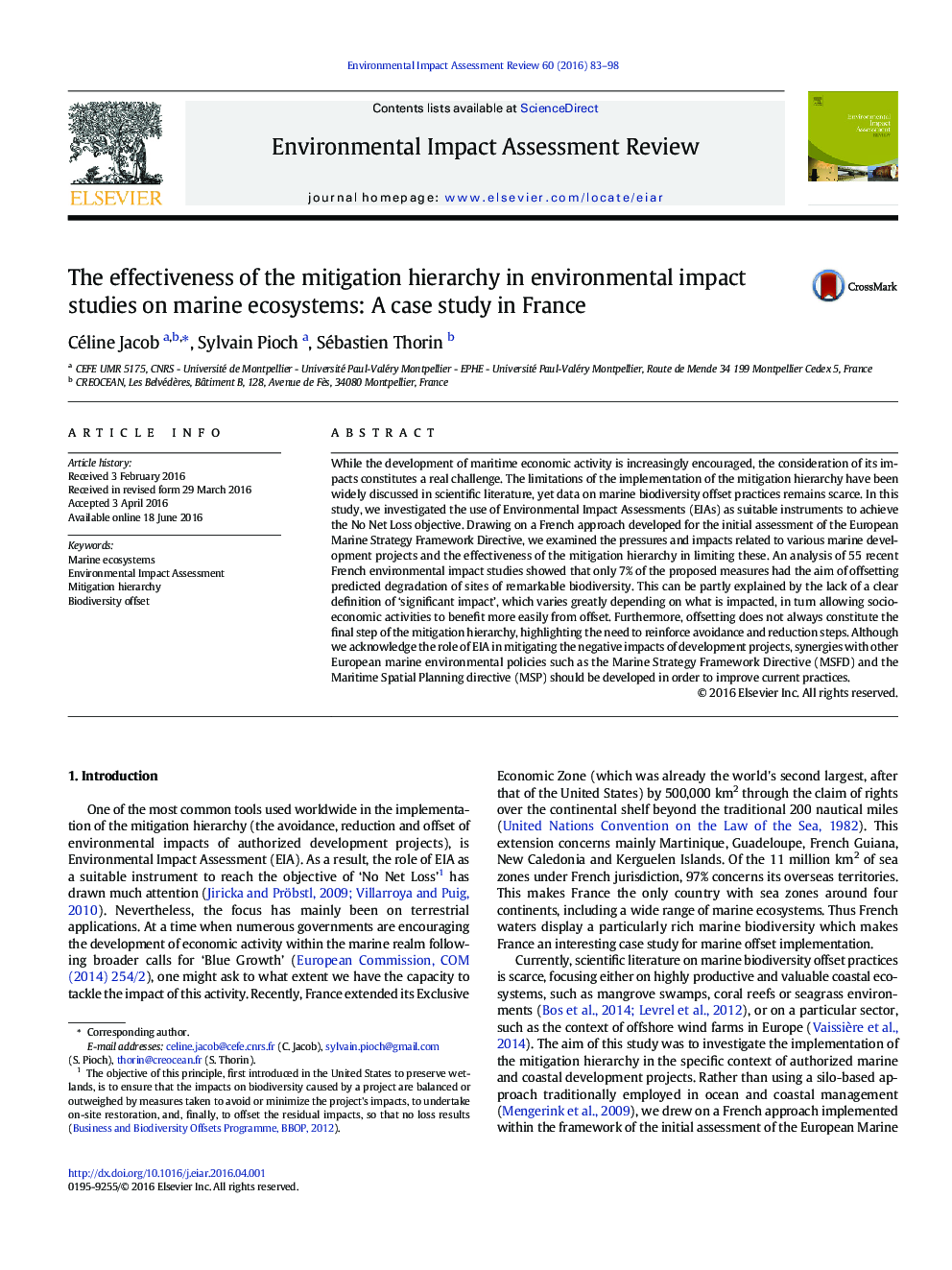| Article ID | Journal | Published Year | Pages | File Type |
|---|---|---|---|---|
| 1052636 | Environmental Impact Assessment Review | 2016 | 16 Pages |
•Avoidance measures were not well represented in the Environmental Impact Assessments studied.•Few significant residual impacts and measures to offset these were described.•Common biodiversity did not benefit from offset measures.•The equivalency of proposed marine offsets is questionable.
While the development of maritime economic activity is increasingly encouraged, the consideration of its impacts constitutes a real challenge. The limitations of the implementation of the mitigation hierarchy have been widely discussed in scientific literature, yet data on marine biodiversity offset practices remains scarce. In this study, we investigated the use of Environmental Impact Assessments (EIAs) as suitable instruments to achieve the No Net Loss objective. Drawing on a French approach developed for the initial assessment of the European Marine Strategy Framework Directive, we examined the pressures and impacts related to various marine development projects and the effectiveness of the mitigation hierarchy in limiting these. An analysis of 55 recent French environmental impact studies showed that only 7% of the proposed measures had the aim of offsetting predicted degradation of sites of remarkable biodiversity. This can be partly explained by the lack of a clear definition of ‘significant impact’, which varies greatly depending on what is impacted, in turn allowing socio-economic activities to benefit more easily from offset. Furthermore, offsetting does not always constitute the final step of the mitigation hierarchy, highlighting the need to reinforce avoidance and reduction steps. Although we acknowledge the role of EIA in mitigating the negative impacts of development projects, synergies with other European marine environmental policies such as the Marine Strategy Framework Directive (MSFD) and the Maritime Spatial Planning directive (MSP) should be developed in order to improve current practices.
